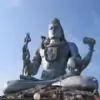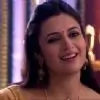There was nothing of substance in PR today, in terms of forward movement in the plot, that had not been predicted by the astute members of the forum. Such as that when Teju takes the photo of Soham, with Archana and Varsha, to Savita seeking an explanation, she would recount the whole story in such a way as to maximize Archana's guilt in Soham's presumed death by drowning (not that this would need too much of an effort, seeing that it was Archana's folly in trusting Varsha with Soham, disregarding Manav's explicit warning, that led directly to the tragedy). In fact Savita goes one further, and blames Archana for having wanted to give Soham away in adoption to Varsha, whereas it was Manav's idea at that point of time. But all this is par for the course, and one watches it with weary resignation.
And as for the supposedly comical interlude between a heavily limping Savita and Archana, who helps her despite Savita's protests, it is far from funny; it is merely a crashing bore.
Yet PR today was made luminous by the reflected glow of love in its varying shades: the enchantment of romantic love, and the warmth of the affection between a father and his son.
Arjun-Purvi:The first, of course, was from one of the most endearing love scenes between Arjun and Purvi seen so far. A scene that was not passionate, not despairing, not even marked by the high romantic, and yet so spangled with fairy dust that it transformed Arjun's bare, dingy little room and lit it with the luminosity of a thousand candles. When one watches the two of them in such a scene, so effortlessly natural and so imbued with a sense of belonging together, and this without coquetry or nakhras on her side, and without any overt displays of affection on his, one realizes how very special these young people are. Their craft is, individually, of a high order, but they do not compete with each other in an attempt to steal the scene. Rather, they instinctively enhance each other's performance, and their obvious charisma is both unselfconscious and overlaid with an unaffected normalcy. It is indeed a rare treat to see them in peak form, as they were today.
Purvi is in the same, blessedly new, blue grey outfit she wore when she was bandaging Arjun's hurt arm. She has, by now, obviously and completely shed her earlier inhibitions about meeting him and going against her aai's dictates. She is counting his savings in the biscuit jar with the mismatched lid, and she asks him: Is this all that you have been able to save? He explains that these are all the tips he was given, ranging from Rs.50/- to Rs.5/-, and even this munificent one - and here he holds up a one or two rupee coin, with the most comical twist of his mouth and his eyebrows. He is getting to be a regular mime artist, is our Arjun!Purvi smiles in tune with his self-mocking mood, but her brow furrows in anxiety, which she voices at once: Janmashtami is so near, with her mother's deadline, and where will they get the rest of the money from? Arjun assures her that they will, whether he has to do overtime or whatever. He clasps both her hands in his and kisses them alternately in his continental style, quirking his brows at her to coax her out of her fleeting depression and make her laugh. It is a gesture more caring and tender than a close embrace, and it works. Purvi perks up, and remembers the food she has brought for him, which he insists that he needs AT ONCE, as he is dying of hunger and has to get to work.
One has seen this scene of lovebirds eating together and feeding each other ever so often. But one has only to watch Arjun and Purvi in action, sitting on that durree, to realize that even such a hoary old chestnut of a stock scene can be freshened up so sharply that it seems new minted. The eagerness in her eyes as she asks him how it (the food) is, and the delight that lights them up when he indicates that it is perfect. Her mock anger when he pretends to feed her and then, in the last minute, pops the morsel into his own mouth. The gentle affection with which he watches her through the wooden lattice as she squats on the floor and washes up the vessels. The very curious expression on his face as he reaches the end of the lattice and stands there, looking down at her. Is it gratitude for the love and care she lavishes on him? Is it regret that she has to do all this? Is it unstated and quiet joy at her just being there with him? One does not know. All that one knows is that his look speaks volumes, and how does it matter if we do not understand its language?
Then a delightful little vignette, as she hands him the clean plate, and then calls him back again and again, with mock contrition at doing so, and piles yet another vessel on to it. With each addition, his expression changes ever so slightly, though it is as inscrutable as ever. Finally, as she finishes, he pretends to be bending under the load. It is so charming and so totally a domestic interlude, that as it ends, one has to remind oneself that this is not a newly married couple, but just our Arjun and Purvi playing at keeping (a very frugal) house.
Arjun-DK: The other scene that warms the cockles of one's heart is the one between Arjun and DK, when Arjun goes home to seek his father's help to save Farooq's garage from being shut down, as he cannot raise the funds needed for the renewal of the lease on the property. The tone is set from the first frame: DK rushes down the stairs with a speed that is as unprecedented as it is totally at odds with his restrained persona. Nothing could have better revealed the depth of his (unstated) anxiety about his son's well being, and his fear that something might be wrong with him.
Arjun makes out the case for DK to help Farooq, and recounts the warmth and simple goodness of these people whom he has got to know "thanks to Archanaji" - from Farooq to his employees - who now constitute his 'family', a family that he does not want to see broken up. As he does so, his face is a study in shifting emotions, and the candour and sincerity he projects are intensely moving. DK watches his son, now so wrapped up in the woes of others, with an unwavering gaze that is both empathetic and almost incredulous. His response to the plea from this newly minted son, one of unquestioning, total and instant support, says as much about DK himself as about Arjun as he is now. DK does not say it out loud, but he must be inwardly rejoicing with Aashana about Arjun having turned out to be her son after all.
As he comes to the end of his mission, Arjun looks around the warmly lit and quietly opulent room. What is it that he feels? Is it a slight and entirely understandable reluctance to leave all this comfort and return to his spartan existence in the chawl? We will never know, but even if it was, he shakes it off in an instant and is up on his feet.
As he is leaving, DK calls out his name and approaches him. Arjun does not turn to face his father, and his face reflects reluctance and hesitation, for he knows what is coming. When DK asks whether the Rs.10000/- is yet to be made up, the emotions that struggle with each other as they flit across Arjun's face belong to a master class in emoting. There is an instant of apprehension, followed by hesitation, and then a forced display of confidence that wrings one's heart. 'I will do it', Arjun asserts, half to himself, as his father replies with a reassuring 'You will!".
As he pats his departing son's shoulder, one can feel that DK wants, more than anything else in the world, to hold Arjun back in the safety and comfort of home, and never to let him go. But he permits nothing of this to appear on his face or in his words, for it would burden his son even more. In doing so, he teaches one what it really is to love a child with both one's heart and one's mind – to let the child go free to follow his own star, but always be there to hold his hand when he seeks it.
It is these interludes, lit up by the glow of love in its varying shades, that lift PR above the usual rut of TV serials. Without them, it would soon be unendurable. Let us hope that we continue to be fed such dollops of ambrosia every now and then, so that we can survive the rest.
Shyamala B.Cowsik




































